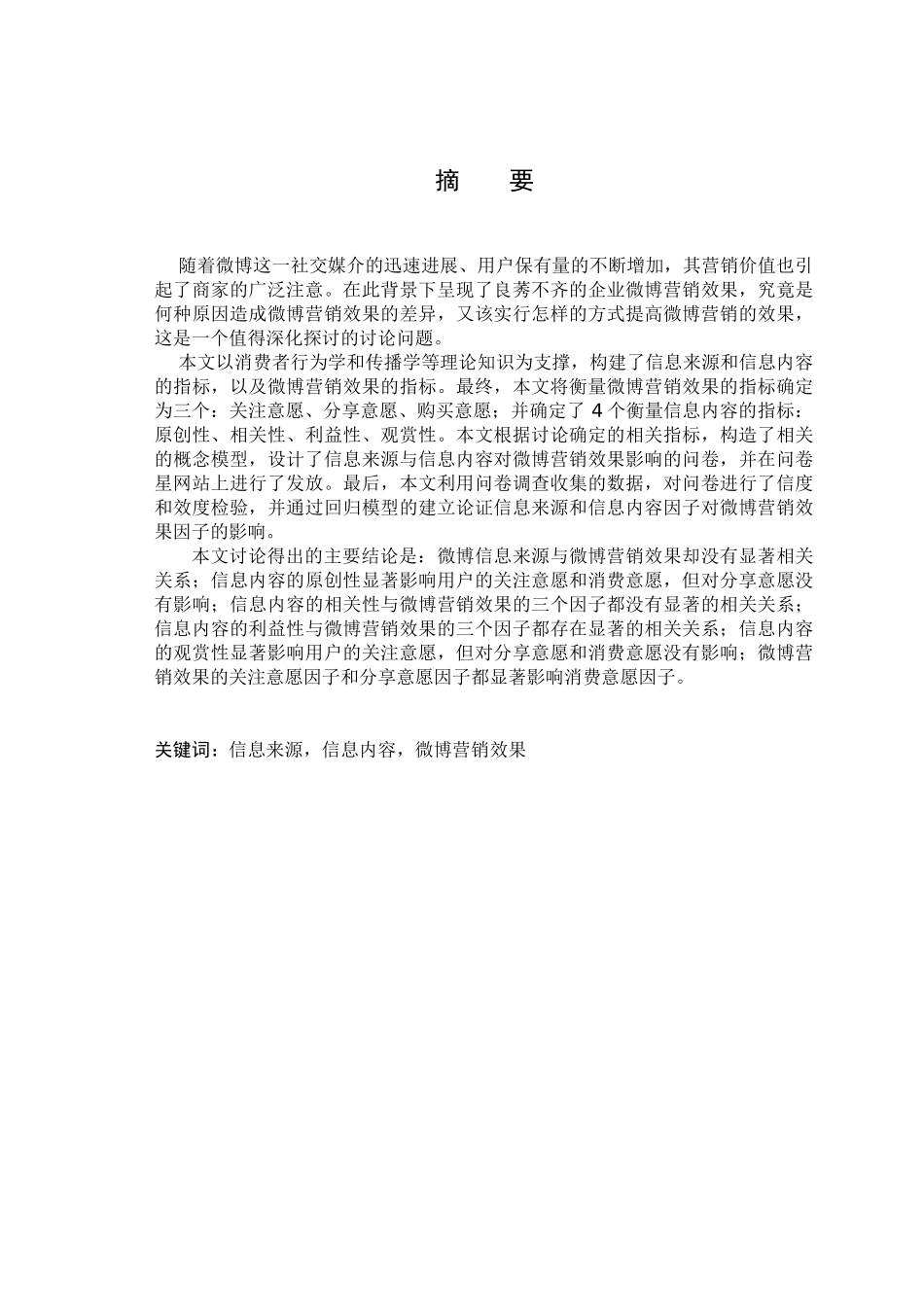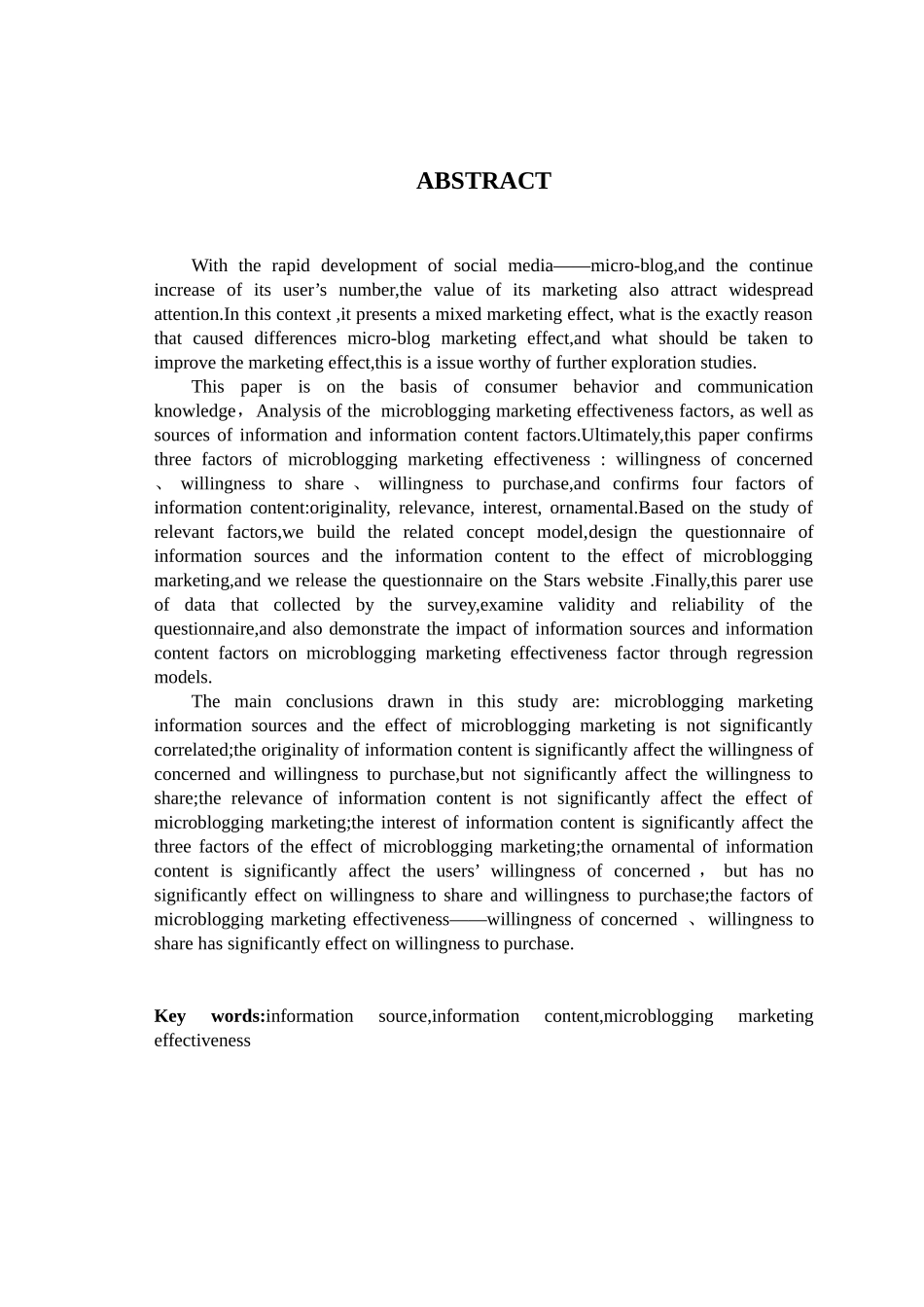摘 要 随着微博这一社交媒介的迅速进展、用户保有量的不断增加,其营销价值也引起了商家的广泛注意。在此背景下呈现了良莠不齐的企业微博营销效果,究竟是何种原因造成微博营销效果的差异,又该实行怎样的方式提高微博营销的效果,这是一个值得深化探讨的讨论问题。 本文以消费者行为学和传播学等理论知识为支撑,构建了信息来源和信息内容的指标,以及微博营销效果的指标。最终,本文将衡量微博营销效果的指标确定为三个:关注意愿、分享意愿、购买意愿;并确定了 4 个衡量信息内容的指标:原创性、相关性、利益性、观赏性。本文根据讨论确定的相关指标,构造了相关的概念模型,设计了信息来源与信息内容对微博营销效果影响的问卷,并在问卷星网站上进行了发放。最后,本文利用问卷调查收集的数据,对问卷进行了信度和效度检验,并通过回归模型的建立论证信息来源和信息内容因子对微博营销效果因子的影响。本文讨论得出的主要结论是:微博信息来源与微博营销效果却没有显著相关关系;信息内容的原创性显著影响用户的关注意愿和消费意愿,但对分享意愿没有影响;信息内容的相关性与微博营销效果的三个因子都没有显著的相关关系;信息内容的利益性与微博营销效果的三个因子都存在显著的相关关系;信息内容的观赏性显著影响用户的关注意愿,但对分享意愿和消费意愿没有影响;微博营销效果的关注意愿因子和分享意愿因子都显著影响消费意愿因子。关键词:信息来源,信息内容,微博营销效果ABSTRACTWith the rapid development of social media——micro-blog,and the continue increase of its user’s number,the value of its marketing also attract widespread attention.In this context ,it presents a mixed marketing effect, what is the exactly reason that caused differences micro-blog marketing effect,and what should be taken to improve the marketing effect,this is a issue worthy of further exploration studies.This paper is on the basis of consumer behavior and communication knowledge,Analysis of the microblogging marketing effectiveness factors, as well as sources of information and information content factors.Ultimately,this paper confirms three factors of microblogging marketing effective...


